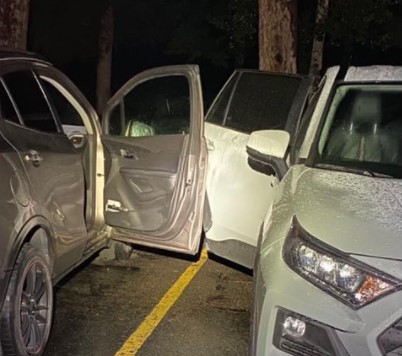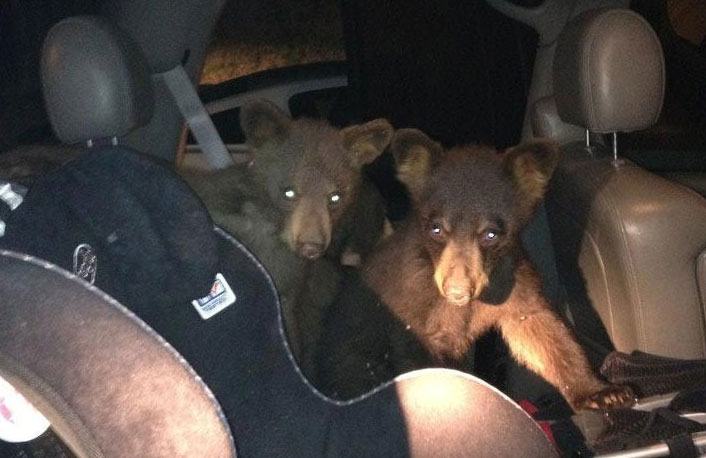ESTES PARK, Colo (KDVR) — A feeding frenzy is underway in Colorado’s high country as bears begin stocking up for hibernation.
Colorado Parks and Wildlife says bears have entered hyperphagia — the process when bears eat and drink nearly nonstop as they fatten up for hibernation — and are now consuming roughly 20,000 calories a day.
That’s leading to an increase in human-bear conflicts, with more than a dozen break-ins reported in just the past week.
“Really, it’s a daily occurrence now: bears getting into vehicles that are unlocked, getting into houses that have their windows cracked,” wildlife officer Chase Rylands said.
Wildlife officials say bear euthanasia is most often traced back to human behavior and urge people to stay bear aware through the late summer and fall seasons.
Bear break-ins on the rise
In the past week, Rylands said four homes and eight cars have been broken into.
Another five additional “invasion” attempts were ended after homeowners scared away the bears.
“They’re looking to pack on 20,000 calories a day, so that’s equivalent to 40 Big Macs a day. So they’re going to be out there working hard, finding those sufficient calories,” Rylands said.
Rylands said CPW has noticed problems at a handful of resorts, hotels and rental properties, where tourists don’t always understand the situation.

Education is key for tourists
Mark Needham manages Estes Park Condos, which handles a number of properties along Fall River Road. He said bear break-ins happen “sometimes more often than we would like to see.”
Last week, Needham said a guest woke up to quite a scare.
“A guest left their condo window open, and he (the bear) got in through the window at about 3 a.m. and gave them a nice wake-up surprise,” Needham said.
Thankfully, the bear ran away, but Needham said it’s a good reminder to educate people coming into the area.
The company has started asking guests to sign a “wildlife and bear safety” contract, reminding people to lock their doors, remove food from vehicles, and not leave windows open at night.
“We were always telling them at check-in process what to do and what not to do, but having them actually sign it and bring it back — it really resonates a little bit more and is a better reminder for the guests,” Needham said.

Rylands, the wildlife officer, said it’s a step he appreciates.
“We gotta protect our bears so we can keep that wild essence here in Estes Park,” he said.
What can cause conflicts between bears and people?
CPW warned that easily accessed human food, trash, fruit trees, shrubs or other attractants with strong odors can lead to conflicts between people and bears, “as a bear’s natural drive to eat can overcome its fear of humans.”
Drought conditions have also impacted the black bear’s natural diet of berries, fruits, nuts, plants and grasses that grow naturally in the foothills and forests.
How to bearproof your home
- Keep garbage in a well-secured location.
- Only put out garbage on the morning of pickup.
- Clean garbage cans regularly to keep them free of food odors: ammonia is effective.
- Use a bear-resistant trash can or dumpster.
- Don’t leave pet food or stock feed outside.
- Bird feeders are a major source of bear/human conflicts. Attract birds naturally with flowers and water baths. Do not hang bird feeders from April 15 to Nov. 15.
- Do not attract other wildlife by feeding them, such as deer, turkeys or small mammals.
- Don’t allow bears to become comfortable around your house. If you see one, yell at it, throw things at it, make noise to scare it off.
- Secure compost piles. Bears are attracted to the scent of rotting food.
- Clean the grill after each use.
- Clean-up thoroughly after picnics in the yard or on the deck.
- If you have fruit trees, don’t allow the fruit to rot on the ground.
- If you keep small livestock, keep animals in a fully covered enclosure. Construct electric fencing if possible. Don’t store livestock food outside, keep enclosures clean to minimize odors, hang rags soaked in ammonia and/or Pine-Sol around the enclosure.
- If you have beehives, install electric fencing where allowed.
- Talk to your neighbors and kids about being bear aware.
- Keep garage doors closed.

How to bearproof your vehicles and campsites
- Lock your doors when you’re away from home and at night.
- Keep the bottom floor windows of your house closed when you’re not at home.
- Do not keep food in your vehicle; roll up windows and lock the doors of your vehicles.
- When car-camping, secure all food and coolers in a locked vehicle.
- Keep a clean camp, whether you’re in a campground or in the backcountry.
- When camping in the backcountry, hang food 100 feet or more from the campsite; don’t bring any food into your tent.
- Cook food well away from your tent; wash dishes thoroughly.
